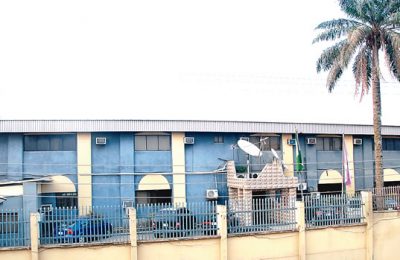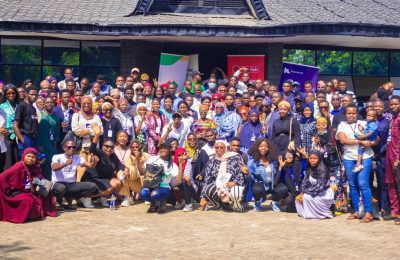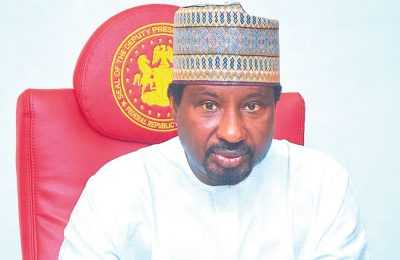THE plan by the United States to punish electoral offenders through visa ban should be extended to bandits, jihadists and ISWAP. It would curb electoral fraud in future and help awaken the Nigerian government to its responsibilities but also curb terrorism in West Africa. Visa restrictions and economic sanctions will be an important step in support of the government of Nigeria’s efforts to defeat Boko Haram and hold its murderous leadership accountable for atrocities. The United Nations will help to close off important avenues of funding and weapons to Boko Haram, and show global unity against their savage actions. The United States should name and shame governments, businesses and individuals suspected of sponsoring Boko Haram and recommend a number of new economic measures to choke off the trade in natural resources for weapons. To eliminate these terror groups, or persuade them to abandon their objective, sanctions would rank as a major policy triumph. The history of economic sanctions amply demonstrates that only military force and covert action can play a decisive role in a battle of this magnitude. At best, economic sanctions can play only a supporting role with respect to terrorist groups.
If the United States is determined to bring economic as well as military power to bear in the fight against Boko Haram, the Joe Biden administration must deploy a variety of economic tools such as preferential trade measures, the application of sanctions coupled with loans to reward allies, and new sanctions to intimidate adversaries who sponsor Boko Haram. In this war, sanctions policy is being used both as stick and carrot, which is a new and welcomed twist. The United States said procedures had been taken to slam visa restrictions on some Nigerians for subverting the democratic process during the country’s 2023 election cycle. We need these steps to equally curb terrorism in West Africa. The Multinational Joint Task Force (MNJTF) recently said the flurry of attacks by the Islamic State West Africa Province (ISWAP) in the last couple of weeks followed pressure mounted on them by foreign collaborators to establish a caliphate. It, however, assured that it was working with national forces to thwart the terrorists’ effort to make the Lake Chad area a sanctuary. “It is imperative to mention that the MNJTF is aware of the pressure on ISWAP by its foreign collaborators to deliver on the Caliphate, hence the flurry of ISWAP inspired attacks of the last couple of weeks on both military and soft targets,” MNJTF spokesman, Col. Timothy Antigha said in a statement.
Antigha gave the breakdown of loss suffered by ISWAP in a recent operation at Doron Naira, in terms of equipment: 17 AK 47 rifles, two GPMG, one LMG, three AA guns, two 81MM mortar one RPG tubes, two RPG7 40MM bombs with chargers, two boxes of 12.7MM ammunition and 323 RDS of 7.62MM. Others were three hand grenades, gas cylinders and IED making material, while the ISWAP ammunition dump was destroyed. Since the collapse of the “caliphate” in Syria and Iraq, Islamic State (IS) has been looking for other places to raise its black flag. Africa, and especially the Sahel, is vulnerable. Most jihadists in Africa are fighting their own governments. Jihadist groups of all varieties are expanding their reach in the coastal countries, Sahel and around Lake Chad.

The countries of the West African region under these threats are Nigeria, Cape Verde, Mali, Sierra Leone, Liberia, Benin, Guinea Bissau, Ghana, The Gambia, Cote d’Ivoire, Sao Tome and Principe and Mauritania. I want to warn of the jihadists’ threat to West Africa, including Mali, Cameroon, Niger, Chad and Coastal countries in West Africa. I want to warn that due to the risk of West Africa being infiltrated by jihadist groups, it is necessary to strengthen the counterterrorism capacity of the major regional players: the African Union (AU) and the Economic Community of the West African States (ECOWAS), and enhance their collaboration with their foreign partners and civil society actors to defeat the jihadists’ ambition for an Islamic Caliphate and build stability in the region. To the extent possible, West Africa needs to review the counterterrorism policies and strategies employed by the United States, the AU, and ECOWAS, and then advance certain policy prescriptions that entail long-term investments by the international community, and regional and civil society actors in West Africa in the areas of defence, development, and peace-building.
On May 3, two French tourists were kidnapped in northwestern Benin. The tourists were missing since May 1, when their vehicle was found burned and their driver shot near the border with Burkina Faso. The victims were returning to Pendjari National Park. Jihadist groups are regularly active in Niger, Nigeria, Burkina Faso and others; however, terrorism has become an increasingly severe threat in some West African countries. Some Western governments have advised citizens from traveling to northern areas of the Sahel along the border with Burkina Faso and Niger. Nigeria and other West Africa countries waited for more than 6,000 ISIS that returned from Syria and Iraq to invade them despite the warning from Africa Union in September, 2017. 6,000 ISIS members that were dislodged in Syria and Iraq have all relocated to the Sahel portion in Africa. The return of these elements to Africa poses a serious threat to our national security and stability and requires specific treatment and intense co-operation between African countries, he said. The so-called foreign fighters African citizens trained in Islamic state terror camps have returned to Africa and pose a completely new challenge.
Tens of thousands of foreign fighters joined the Sunni extremist group after it seized vast swathes of Iraq and Syria and declared a caliphate in 2014. If we cannot restrict these various dreaded terrorist groups now, there may not be a country called Nigeria in the nearest future. These terrorist groups are terrorising West Africa constantly. We must act now before 6,000 ISIS fighters overrun West Africa. The largest coalition of jihadist groups is known as Jama’at Nusrat ul-Islam wal-Muslimeen, or JNIM. It brings together al-Qaeda’s Sahara franchise, AQIM, with a number of other militant groups. The coalition was formed in March 2017 and operates in Mali, Burkina Faso, and Niger. A surge in violence across West Africa’s Sahel has displaced hundreds of thousands of people and left thousands dead since January, as Islamist militants with links to al-Qaeda and so-called Islamic State extend their reach across the region at a time when they are losing ground in their Middle Eastern strongholds.
The militancy’s rapid progress has been aided by the region’s vast desert areas and porous borders, a flow of firearms from nearby Libya, and weak – and often predatory – states that struggle to provide even basic social services: Burkina Faso, Mali, and Niger all rank among the 10 least developed countries in the world, according to the UN’s Human Development Index. The region is facing a severe protection crisis. The armed violence that has affected large parts of the Lake Chad Basin is stretching to its tenth year. Hundreds of thousands of civilians have lived in displacement sites and refugee camps for years, grappling with extreme hardship and deprivation. Many civilians have suffered abuse and rights violations and are deeply traumatised by the violence.

The New Humanitarian news agency (formerly IRIN) a few days ago released a detailed report on the security crisis which may threaten West Africa with invasion by the militias. According to the news agency, jihadist groups have recruited heavily from Fulani pastoralists, which it described as “an ethnic group that suffers from social exclusion as well as government and development programmes that favour agriculturalists.” The report added that this has raised tensions with members of other ethnic groups who say they are targeted by the jihadists.
Sahel countries are Senegal, Mauritania, Mali, Burkina Faso, Southern Algeria, Niger, North of Nigeria, Central Chad, Central and Southern Sudan, the extreme north of South Sudan, Eritrea, Cameroon, Central African Republic and the extreme north of Ethiopia
There are fears that the current security problems wracking West Africa could become worsened soon with reports that jihadists across the West African region are recruiting heavily from aggrieved Fulani pastoralists. While the United Nations Office for the Coordination of Humanitarian Affairs (OCHA), fears a hike in the population of the displaced in West Africa, other reports warned that militant groups in the Sahel are on their way down to other West African countries.
In the absence of the state, some have turned to self-defence militias, who have indiscriminately attacked Fulani communities. Failure to contain the insurgencies, could also result in further regional destabilisation, with militant groups now moving southwards from Burkina Faso towards Ghana, Togo, Ivory Coast, and Benin, where two French tourists were recently kidnapped.
It’s no longer just the Sahel, its West Africa and the risk of spreading regionally, Burkina Faso Foreign Minister, Alpha Barry, told a security conference in Munich in February. In January 2019, the Governments of Cameroon, Chad, Niger and Nigeria reaffirmed their commitment to the Abuja Action Statement on civilian protection in the Lake Chad Basin region. The agreement comprises a range of actions to enhance protection and respond to the most urgent needs of refugees, internally displaced persons and other affected populations.
UNITED Nations should act now to prevent humanitarian crisis in West Africa. Military operations are on in some regions in Burkina Faso, Mali, Nigeria. Niger, Chad, Cameroun and others. This is the time to avoid humanitarian disaster in West Africa. The war on terrorism in West Africa should be fought on many fronts: diplomatic.







